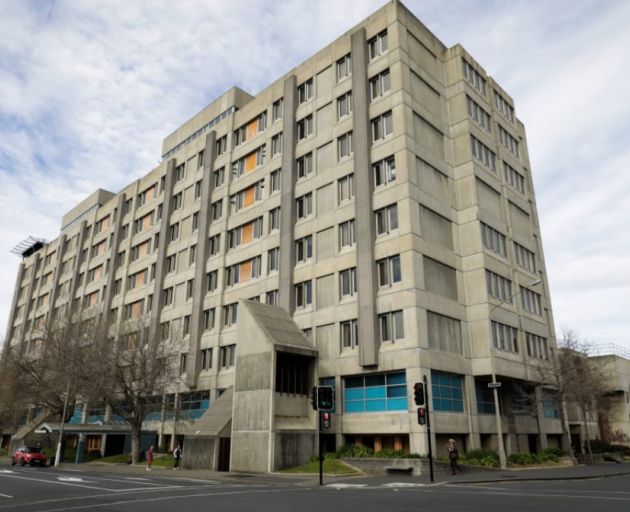
Te Whatu Ora Health New Zealand (HNZ) Southern confirmed the waiting lists yesterday after the Otago Daily Times reported earlier this week that two of the hospital’s four urologists had resigned.
HNZ Southern chief medial officer Dr David Gow said more operations were being outsourced to private providers including in Dunedin, Christchurch, Invercargill, and Auckland to deal with the situation.
"Our urology department isn’t able to see patients as soon as they would like due to reduced staff numbers at present," he said.
There were 581 patients on the first specialist assessment waiting list.
This included 90 people awaiting a cystoscopy, 64 awaiting a biopsy, and 427 awaiting a consultation.
A total of 402 patients were waiting for a follow-up appointment.
Dr Gow said the urology department — which provided specialist care for conditions affecting the urinary tract, predominantly covering the kidneys, ureters, bladder, and the prostate gland — had also brought in locum doctors from throughout the country, and introduced new models of care.
One urologist had resigned this month, while another resigned in December last year, Dr Gow said.
HNZ Southern was recruiting both nationally and internationally to replace them.
Figures provided by HNZ Southern showed the median number of days people were currently waiting across three categories.
For a biopsy this was 42 days, and for a cystoscopy, it was 79 days.
The median wait for a consultation was 125 days.
However Dr Gow noted that this was an improvement compared with the past 12 months.
Between July 1, 2022, and June 30, 2023, the median wait for a biopsy was 147 days, and 130 for a cystoscopy.
The median wait for a consultation had been 126 days.
"The difference in the current performance compared to last year’s wait times illustrates the changes made have improved the wait times.
"However, the service remains under considerable pressure and is reliant on external support to maintain current wait times."
Urgent cases were being prioritised, and virtual clinics had been introduced for surveillance patients, as these were more efficient.
Additional day and evening clinics were being run by permanent and locum staff, and the department had reached out for regional support to further reduce waiting times.
HNZ Southern acknowledged the impact waiting times had on patients and families, and encouraged people to contact their GP if their condition worsened.
It appreciated the dedication of the urology staff as it worked to recruit to the department.
"We remain committed to delivering timely urology services to our community."
The urology department has struggled with dangerously long wait times in the past.
In 2019, a damning health and disability commissioner report found managers at the Southern District Health Board — now HNZ Southern — were, for about three years, aware of issues with its urology service causing long delays in treatment.
It had heard from 38 patients in total and considered four cases in particular, and found delays in the assessment and treatment of patients posed a "substantial clinical risk".
"Clinicians and members of the public came to expect delays, and delays became normalised," the report said.
While scathing about the historical deficiencies in the service, the report praised the southern board for its eventual response to the situation, including the mega-clinic weekends using out-of-town doctors.
In late 2019, a new hire brought the total number of urologists based in Dunedin Hospital to four.
By the next year, the situation seemed to have turned around — the assessment team which evaluated the service for accreditation commented that Dunedin urology had gone from being the worst underperforming service in the country to "possibly the best".
In 2021, the urology service clinical director cited this description while detailing improvements, telling the board that when once patients routinely waited for more than a year for "urgent" surgery, now almost all procedures were done within 28 days.
It was a good start, although there was still more to do, the director said at the time.











